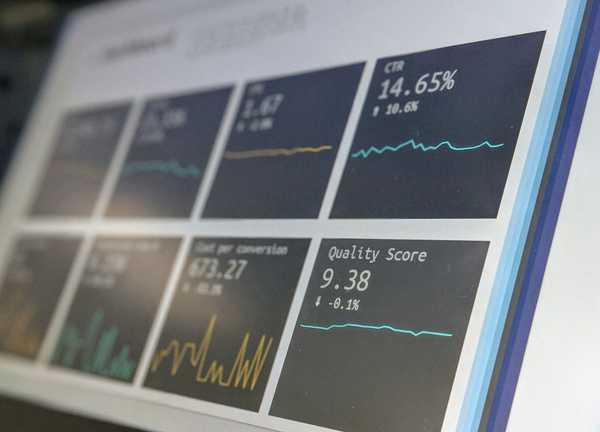Boosting E-Commerce Efficiency: How Creative Agency Project Management Tools Can Enhance Your Online Store
Managing an e-commerce store can often feel like juggling numerous tasks simultaneously, from handling product listings and order fulfillment to managing marketing campaigns and customer queries. As your online business grows, so do the demands on your time and resources. Efficiently organizing these aspects is crucial, not only for keeping your operations running smoothly but also for giving you the bandwidth to focus on scaling your business.
This is where project management tools designed for creative agencies come into play. While typically geared toward marketing and design firms, these tools offer features that can be a game-changer for e-commerce businesses looking to streamline their operations. By adopting the right project management platform, you can integrate many of your store’s daily processes, enabling you to run your online business with greater ease and efficiency.
In this article, we'll explore how creative agency project management tools can enhance your e-commerce store's efficiency, improve collaboration, and contribute to long-term success.
The Challenge of Managing E-Commerce Operations
E-commerce stores often require managing a complex mix of tasks, from inventory control and customer service to marketing campaigns and website maintenance. Each of these elements may seem manageable on its own, but coordinating them into a streamlined process can quickly become challenging. This is especially true as your business scales and the volume of tasks increases.
Many e-commerce business owners rely on multiple software tools for different functions—one platform for inventory management, another for customer service, and yet another for marketing. While each tool may excel in its own area, switching between multiple platforms can lead to inefficiencies, miscommunications, and costly mistakes. As a result, projects often run over budget, team members lose track of important details, and bottlenecks delay progress.
Why Creative Agency Project Management Tools?
Creative agencies work on a variety of complex projects, often requiring the collaboration of multiple team members or departments. This necessitates a high degree of organization and oversight, which is why project management tools tailored for these agencies often include robust features like budget tracking, time management, task delegation, and advanced collaboration options. These same features can provide an e-commerce business with a similar level of organization and operational clarity, especially as the business grows.
Moreover, creative agency project management tools often support customization, allowing you to tailor workflows to your specific needs. This flexibility can be invaluable for e-commerce, where each business operates differently depending on factors like the type of products sold, the market targeted, and the scale of operations.
Let’s take a closer look at how these tools can impact key areas of your e-commerce store.
1. Centralized Task Management: Keep Your Team on the Same Page
At the core of any successful e-commerce operation is the ability to efficiently manage tasks. From fulfilling customer orders to scheduling marketing campaigns, every element requires attention and coordination. Using a centralized task management system enables you to keep all of these tasks in one place, making it easy to assign responsibilities, track progress, and ensure that nothing falls through the cracks.
For example, creative agency project management tools allow you to create task lists, assign them to specific team members, and set deadlines, ensuring accountability and clarity across your team. A project dashboard provides a real-time snapshot of progress, helping you stay informed about where tasks stand without needing to check in manually.
Moreover, many of these tools integrate with popular e-commerce platforms, such as Shopify, WooCommerce, or BigCommerce, allowing you to sync order fulfillment, inventory updates, and customer data into one interface. This level of integration reduces the need for constant back-and-forth between different platforms, further enhancing operational efficiency.
2. Improved Collaboration: Breaking Down Communication Barriers
Effective communication and collaboration are key to the success of any business, and e-commerce is no different. Whether you’re working with an internal team or external partners, such as suppliers, designers, or freelancers, keeping everyone aligned and informed is crucial to completing tasks on time.
Project management tools designed for creative agencies come equipped with collaborative features that facilitate real-time communication between all parties involved. Teams can comment directly on tasks, share files, and provide feedback within the platform. This helps reduce the back-and-forth typically associated with email chains and provides a clear record of decisions and revisions.
For instance, if you're coordinating with a designer on a new product launch, you can upload product images and marketing copy directly into the task, allowing the designer to make edits and leave feedback. Everyone involved in the project can view these updates in real-time, ensuring that nothing is missed, and everyone remains on the same page.
Many creative agency tools also support integrations with communication apps like Slack, ensuring that any task-related discussions remain within the workflow.
3. Enhanced Marketing Automation and Oversight
Marketing is the lifeblood of most e-commerce businesses. The challenge is that running multiple campaigns across different channels (email, social media, PPC ads, etc.) can be time-consuming and prone to oversight. Fortunately, project management tools can help streamline the entire process, making it easier to plan, execute, and monitor marketing activities from one place.
Using a project management tool allows you to create a comprehensive marketing calendar, laying out key deadlines for content creation, promotional campaigns, and product launches. From there, you can break down each campaign into actionable tasks and delegate them to your marketing team or external freelancers. The tool’s task management capabilities ensure that every step of the campaign is completed on time, while its collaboration features facilitate smooth communication between team members.
Additionally, many creative agency project management tools integrate with email marketing platforms, social media scheduling tools, and CRM software, allowing you to automate much of the marketing process. These integrations save time and ensure consistency across your campaigns, enabling you to focus on analyzing performance metrics and optimizing your marketing efforts for better results.
4. Time and Budget Tracking: Keep Your E-Commerce Projects on Track
Effective time management and budget control are essential components of a successful e-commerce operation. With creative agency project management tools, you can easily track how much time is being spent on specific tasks and ensure that projects stay within their allotted budget. This is particularly useful for larger e-commerce businesses that work with external agencies or freelancers who charge by the hour.
These platforms often include built-in time tracking tools that allow team members to log their hours directly into the system. This not only provides an accurate picture of how long tasks are taking but also helps in budgeting and cost analysis. You can quickly identify areas where time is being wasted and adjust accordingly, improving overall efficiency.
Budget tracking features enable you to set financial parameters for each project or campaign, ensuring that you don’t exceed your limits. By monitoring costs in real-time, you can make informed decisions on resource allocation, which can help prevent overspending.
For example, if you're planning a large-scale marketing campaign for a holiday sale, you can use the tool to track costs associated with advertising, graphic design, and content creation. With these features, you’ll have a clear understanding of whether you’re staying within budget or need to reallocate resources to prevent overspending.
5. Streamlined Inventory and Order Management
Inventory management is a critical aspect of running an e-commerce store. Over-ordering products can lead to excess stock that ties up your budget, while under-ordering can result in missed sales opportunities. Project management tools can help you strike the right balance by providing a clear overview of your inventory levels and order statuses.
Some creative agency project management platforms integrate with e-commerce solutions, enabling you to manage your inventory and order fulfillment within the same interface. This integration streamlines your processes, allowing you to see which products are selling quickly and need to be restocked and which ones are moving slowly. Having this information readily available lets you make better inventory decisions, reducing the risk of stockouts or overstocking.
Additionally, by integrating order tracking, you can monitor the progress of shipments and keep customers informed about their orders. This helps you improve customer satisfaction by ensuring timely deliveries and transparent communication.
The fast-paced nature of e-commerce requires business owners to find innovative ways to stay organized and efficient. Creative agency project management tools, designed for managing complex, collaborative projects, offer the flexibility and features that e-commerce businesses need to stay competitive.
By implementing a project management system, you can centralize your tasks, improve collaboration, enhance marketing efforts, and gain better control over your time and budget. These improvements can help you stay focused on what truly matters: growing your business and delivering exceptional value to your customers.
Investing in the right project management tool is not just a matter of convenience—it’s a strategic move that can provide long-term benefits. With streamlined operations and more efficient workflows, your e-commerce store will be well-positioned for sustainable growth in an increasingly competitive online marketplace.


